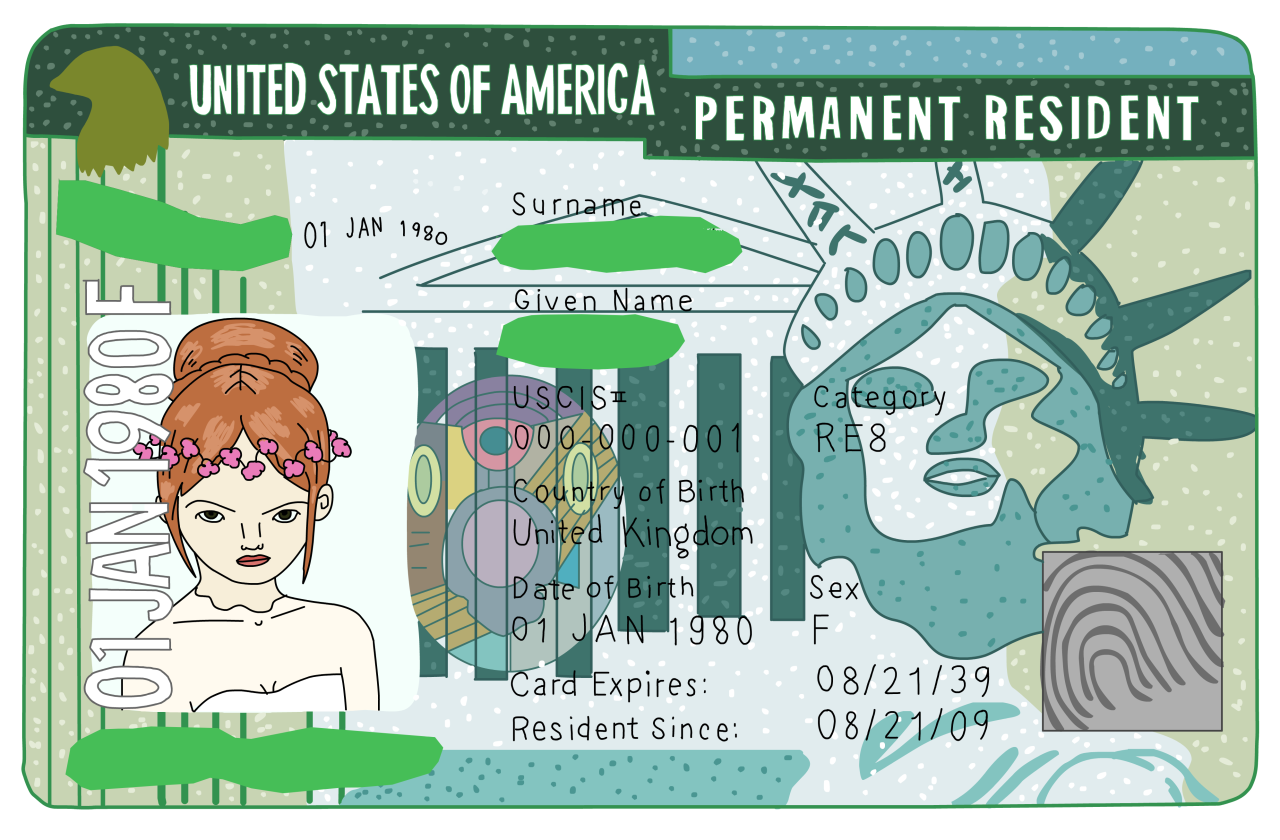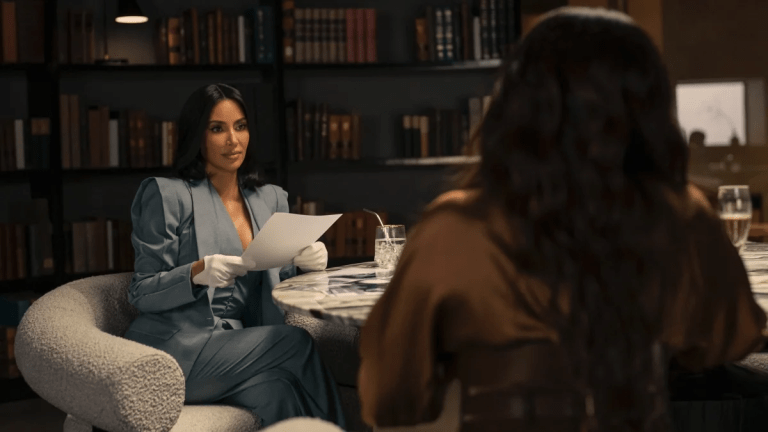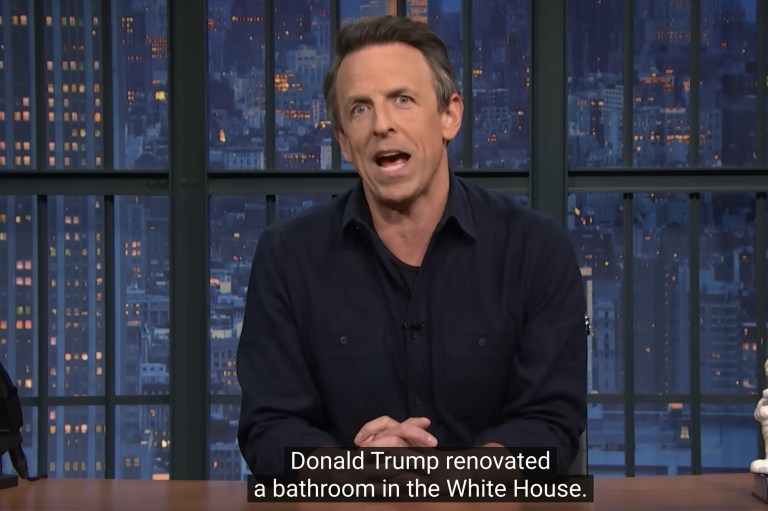
Green Card Marriage: I Paid A Man To Marry Me For US Citizenship
"If we failed the notoriously grueling marriage interview, I would be deported and my fake husband would be imprisoned for at least two years."
By Anonymous
For every person you ever meet, you’re bound to develop at least three first impressions. If you were to meet me? British, over-polite, affable. And you’d be right. Three things you definitely wouldn’t guess? Fraudster, federal law-offender, illegal immigrant.
As with most crimes, my motive was admittedly selfish. I had fled a troubled phase in London for a second chance in New York, fallen in love with the city, overstayed my tourist visa, and couldn’t bear to drag myself home.
“You have two options, Miss,” said the shifty lawyer I randomly selected to advise me on my immigration prognosis. “Leave the country and be banned from re-entry for ten years. Or get married.”
There was a company willing to employ me and I had an American relative who was willing to sponsor me, I pointed out.
“Doesn’t matter,” the lawyer affirmed. “You’ve already broken the law. Falling in love and getting married is the only way the U.S. government will pardon you.”
Squinting skeptically, I paid for my consultation and left. As it transpired, he was right. As tough as the immigration laws are in this country, marriage is indeed the golden loop hole, no matter your good or bad credentials.
![]() A few months later, I was sitting before the same sketchy lawyer with my grinning fiancé in tow. Now it was his turn to be skeptical.
A few months later, I was sitting before the same sketchy lawyer with my grinning fiancé in tow. Now it was his turn to be skeptical.
“Is this a marriage of convenience, or a marriage of love?” he inquired.
“Love,” we chimed. “Definitely.”
After a brief but frantic search, I had enlisted the services of Joe, an out of work actor with a blatant disregard for the law and an earnest desperation for his next sizable pay check. Joe was short, classically handsome, and not at all my type. We’d met through friends, and when I mentioned my predicament, he’d stepped in without hesitation—for the going rate of $12,000 (a massive sum for me, but I figured that if I could convince a stranger to marry me, I’d find a way to afford it).
If Joe and I could pass the notoriously grueling marriage interview, I would have my Green Card and he would have a big chunk of cash. If we failed, I would be deported and he would spend a few years in prison.
Joe and I agreed upon the particulars of our deal in a near-empty Brooklyn beer garden one spring afternoon, the sun poking through an arching blossom tree as we shook hands. I will never forget that day. It would have been romantic, had it not been so deeply unromantic.
“Congratulations,” said my lawyer, enthusiasm halfhearted. With a wink, he added, “Make sure your families come to the wedding. Take lots of pictures. Merge your assets. You need as much documentation to prove that you’re a genuine couple as possible. You wouldn’t believe how many people try to get away with false marriages for a Green Card.”
Laughing nervously while taking thorough mental notes, Joe and I bid the man farewell and set off to prove ourselves on paper.
![]()
Over the next few months, Joe and I actually became good friends. We chatted about our pasts, our futures and our love lives in between snapping evidentiary photos of ourselves hanging out. We had fun trying to look the part of a duo deeply in love.
We opened joint accounts for banking, phone service and various utilities. I paid the bills.
I even ordered myself an engagement ring from Amazon. The day it arrived, Joe and I contrived a detailed story about the proposal, and Joe’s arduous quest for the perfect (cubic zirconia) rock.
The wedding took place on a blissful summer day at my aunt’s house. I borrowed a friend’s wildly inappropriate, low cut (but white, at least) prom dress.
We wrote joke vows, and cried with laughter while reading them out loud to each other at the altar. In our wedding photos, it looks as if we’re weeping with joy.
The only time our lips ever met was that afternoon, shortly after the priest—a vague, loosely religious friend—uttered the words “You may now kiss the bride,” while rolling his eyes of course.
My beloved mother, the most morally staunch human I know, gamely flew from England to corroborate our elaborate scheme. She wasn’t secretly hoping that Joe and I would actually fall in love because she knew me better than that. And yet, a wedding’s a wedding (even if it’s a ruse wedding), so tears inevitably rolled down her cheeks.
![]()
If this had been a film, the script would have dictated that Joe and I soon fall in love. It wasn’t, and we didn’t. But we did like and respect one another, and we did then eerily follow the path of so many doomed married folks.
Shortly after our nuptials, Joe met someone—someone who didn’t exactly approve of our whole plan—and fell in love with her. As quickly as he’d waltzed into my life, Joe suddenly wanted out.
Unfortunately, our final interview loomed in the not-too-distant future. To secure my Green Card, I needed Joe to sit alongside me in an interrogation room so we could be cross-examined about the validity of our marriage by government experts trained in the art of sniffing out liars.
Joe had already pocketed his $12,000 fee, and he didn’t have the means to pay me back. Still, he’d made a mistake, he said. Suddenly, he didn’t want to risk his balls and fail the interview. It was hardly as though I could sue him for damages.
A huge row ensued and our picture perfect fake marriage crumbled. Both our futures were now at stake and our heated exchanges grew profoundly ugly.
![]()
The night before the interview, Joe disappeared—refusing to return my frantic text messages and phone calls. In the early hours of the morning, however, driven by guilt, Joe showed up at my apartment and agreed to accompany me after all. We despised one another by this point, but we downed a few pre-noon shots of whiskey, put on our game faces, and rehearsed our act once more. We had both written down our respective life stories—schools, childhood pets, vacations, you name it—swapped them, and learnt them by heart.
Nearly convulsing with nerves, we sat down before the stern immigration official charged with determining our fates. Wearing a floral tea dress (my most wifely outfit, I’d reasoned), I held Joe’s limp hand with simmering revulsion.
“Documents…” barked the officer.
I plonked my carefully curated stack of fabrications down on his desk.
The man flipped through our wedding album, scoured our bank statements, and then quizzed us: “Who takes out the trash?”…”What side of the bed do you each sleep on?”…”Where’d you eat dinner last Friday night?” A string of surprisingly tricky queries, though nothing we hadn’t prepared for.
Finally, he leaned back in his chair, and, with a penetrating look, spoke directly to Joe. “So how are you finding this?”
“Finding what?”
“Marriage. How are you finding married life?”
“Honestly,” Joe said, voice strained, as if a fist were stuck in his throat, “it’s not as easy as I thought it would be.”
The officer reached for a large rubber stamp and hovered it ominously above our file.
“That’s good to hear,” he said. “People who are faking it never say that. Marriage is hard. Welcome to America!”
We had ultimately convinced the officer, it seemed, on the single shred of honesty we’d offered.
Joe and I left the immigration office together, then strode off in separate directions even though we were heading to the same Brooklyn neighborhood. We haven’t spoken since and I highly doubt we ever will again.
These days, I’m the fraudulent holder of a Green Card and a newspaper reporter by trade—a professional spin artist, if you will.
My single shred of honesty? Some day, I hope to enjoy a real white wedding of my own. My dress will be modest, Mom will cry (again), and my marriage will be for love rather than convenience. ![]()











